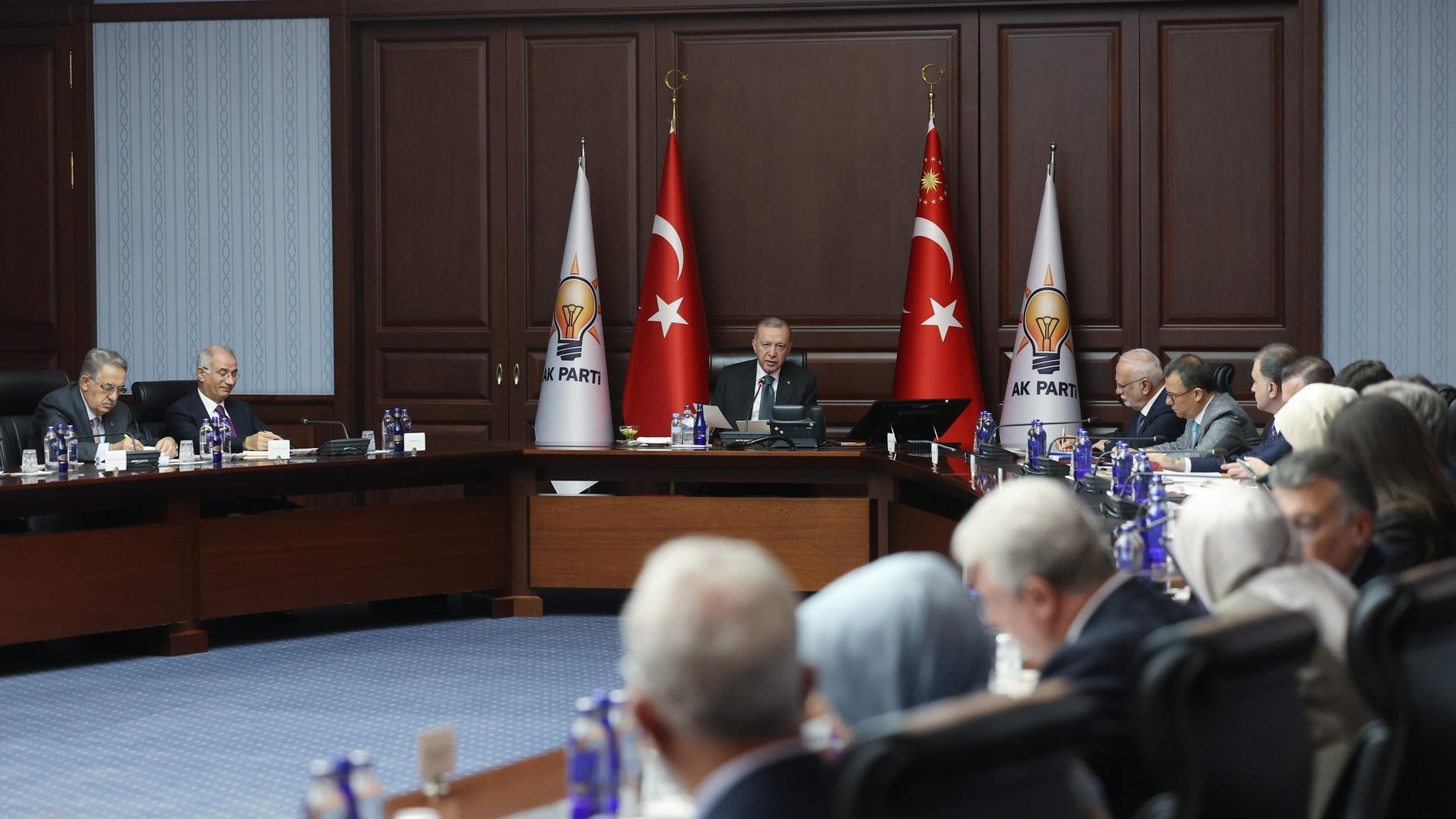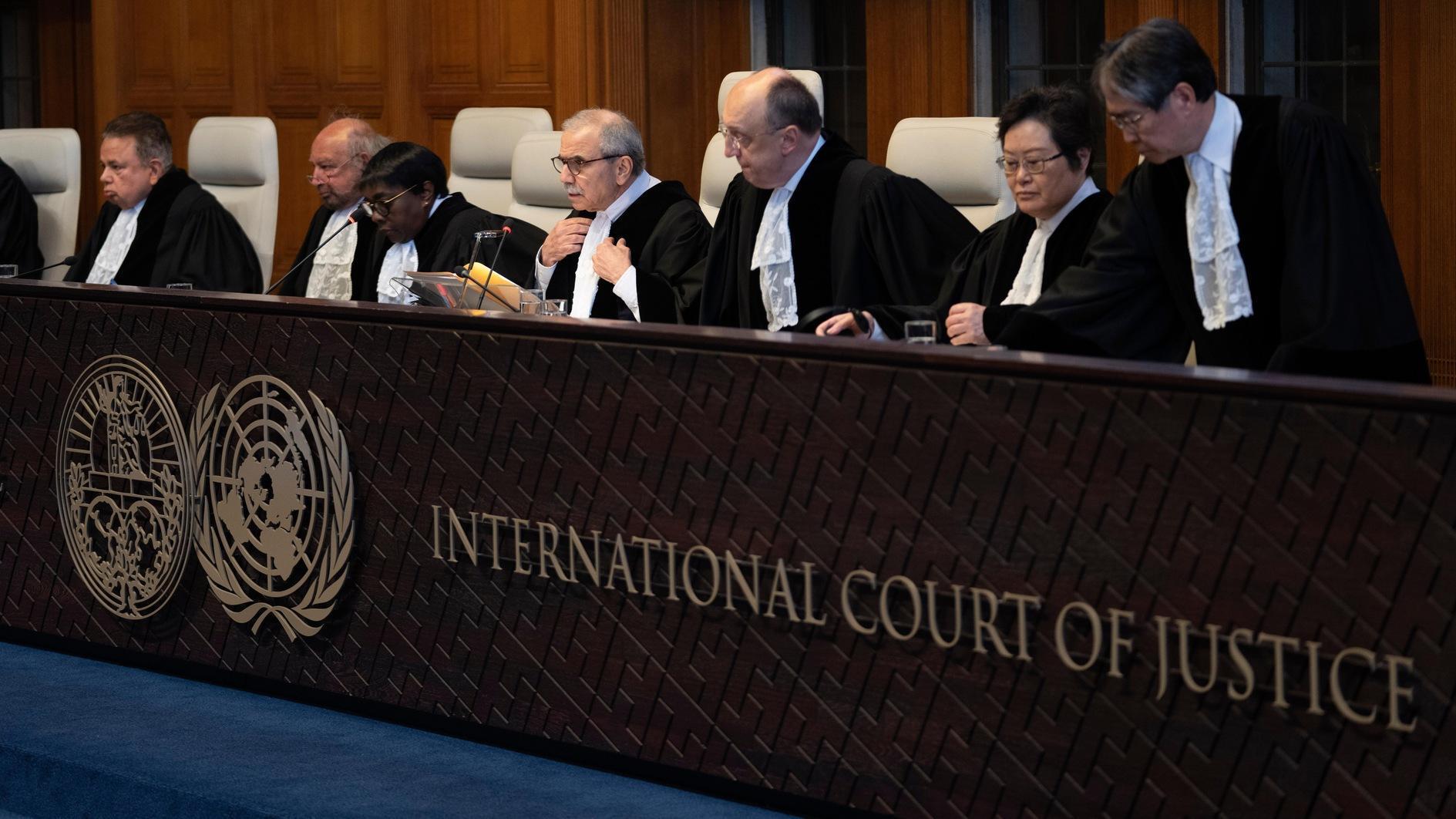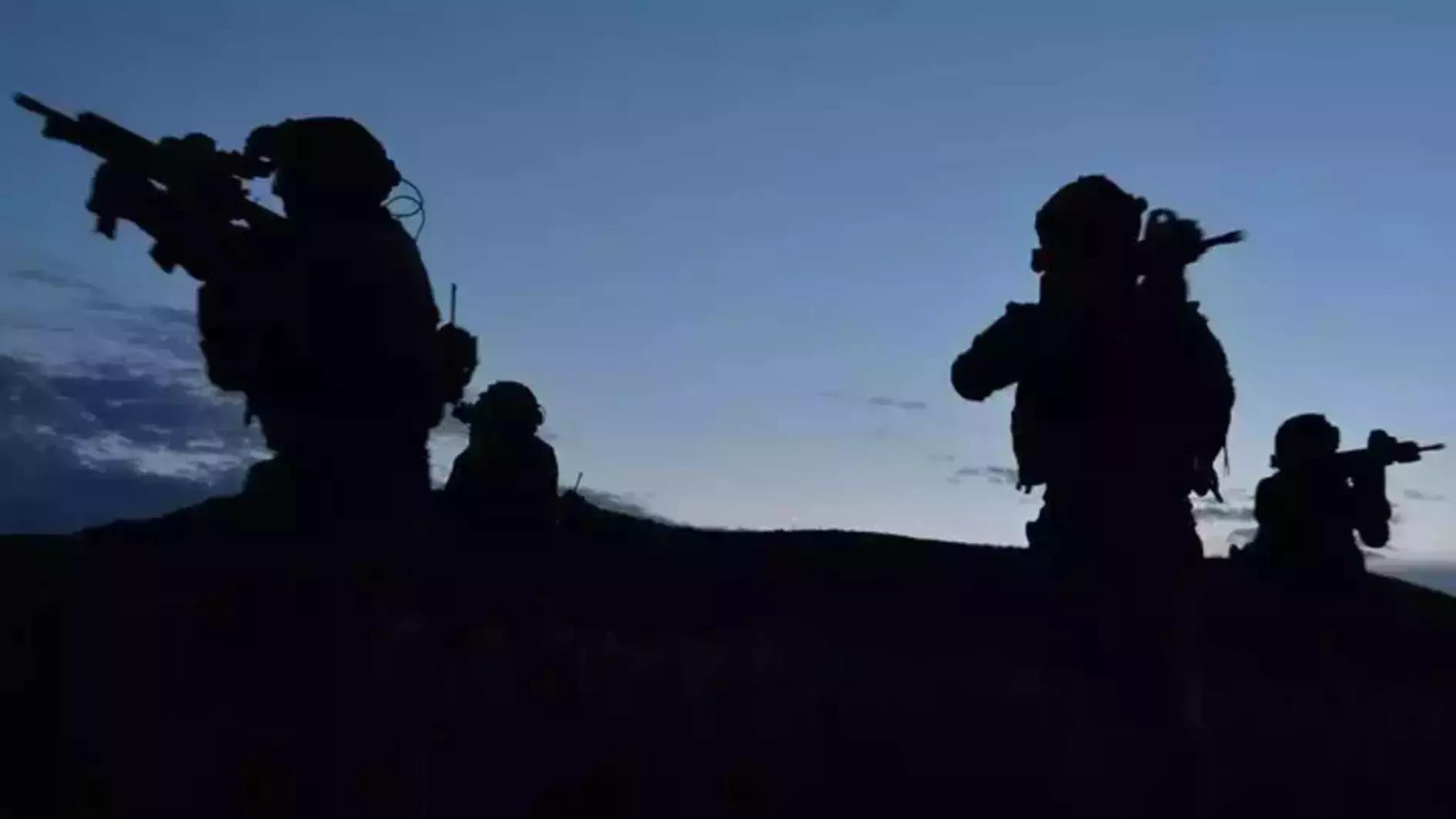Judge in Mubarak retrial withdraws, case adjourned in seconds
CAIRO - Agence France-Presse

Former Egyptian President Mubarak waves inside a cage in a courtroom at the police academy in Cairo April 13. REUTERS photo
The retrial of Egypt's former president Hosni Mubarak after he appealed against a life sentence began on April 13 in Cairo and was immediately adjourned as the judge recused himself amid chaotic scenes.Mostafa Hassan Abdallah recused himself after a hearing that lasted just seconds, sending the case back to the Court of Appeal which will then refer it to a new court.
As the judge filed out of the courtroom, there was uproar with people shouting and waving their arms.
Civil society lawyers attending the trial chanted: "The people want the execution of the president." Last October, the very same judge had acquitted the defendants in the infamous "Battle of the Camels" trial, who were accused of sending men on camels and horses to break up a protest during the 2011 uprising that toppled Mubarak.
Earlier on April 13, television footage showed Mubarak, dressed in white and wearing sunglasses, wheeled out of an ambulance on a stretcher and taken into the capital's Police Academy in a suburb of the capital for the hearing.
Inside the courtroom, he was seen sitting up, smiling and waving from inside a barred cage, although it was not clear if he was greeting anyone in particular.
In the cage with him were his two sons, Gamal and Alaa, and his former security chief Habib al-Adly, who were due to face retrial.
Earlier, a handful of Mubarak supporters outside the courthouse held up posters of their former leader, but were outnumbered by security officers.
Mubarak was flown to the academy that was once named after him by helicopter from the Cairo military hospital where he is being treated, the official MENA news agency said. He left the compound the same way.
His original trial in August 2011 was a major moment for both Egypt and the region, being the first time an Arab leader deposed by his people had appeared in court in person.
Mubarak, Adly and six security chiefs were again in the dock - albeit briefly - for their alleged complicity in the murder and attempted murder of hundreds of peaceful protesters on January 25-31, 2011.
Gamal and Alaa Mubarak, once symbols of Egyptian power and wealth, also faced retrial on corruption charges. Another defendant, business tycoon Hussein Salem, was to be tried in absentia.
Mubarak, who turns 85 in May, has suffered several health scares and MENA even reported him clinically dead at one point as he slipped into a coma.
Retrial eclipsed by political turmoil
In January, Egypt's highest court, the Court of Cassation, ordered a retrial for Mubarak after accepting an appeal against his life sentence, citing procedural failings.
Adly had also been sentenced to life for involvement in the deaths of protesters, but controversially his security chiefs were acquitted, sparking widespread anger and protests after last June's verdict.
President Mohamed Morsi, who won elections that same month on the Muslim Brotherhood's ticket, had pledged new trials for former regime officials including Mubarak.
Until Saturday's courtroom turmoil, the fate of the ousted strongman has been largely eclipsed by deadly violence and economic woes currently gripping Egypt, however.
Morsi's presidency has been plagued by unrest and deadly clashes between protesters and police, a revolt in the canal cities, sectarian violence and a devastating economic crisis.
"The country is largely unlikely to pay attention to the trial," said H.A. Hellyer, a non-resident fellow at the Brookings Institution, said ahead of Saturday's hearing.
"There is the potential that the ruling party use the trial to deflect attention from the problems they are facing," he told AFP.
But despite the fact that what happens to Mubarak seems of little relevance to many, there is still widespread anger over no one being held accountable for nearly 900 deaths during the 18-day uprising in 2011.
















